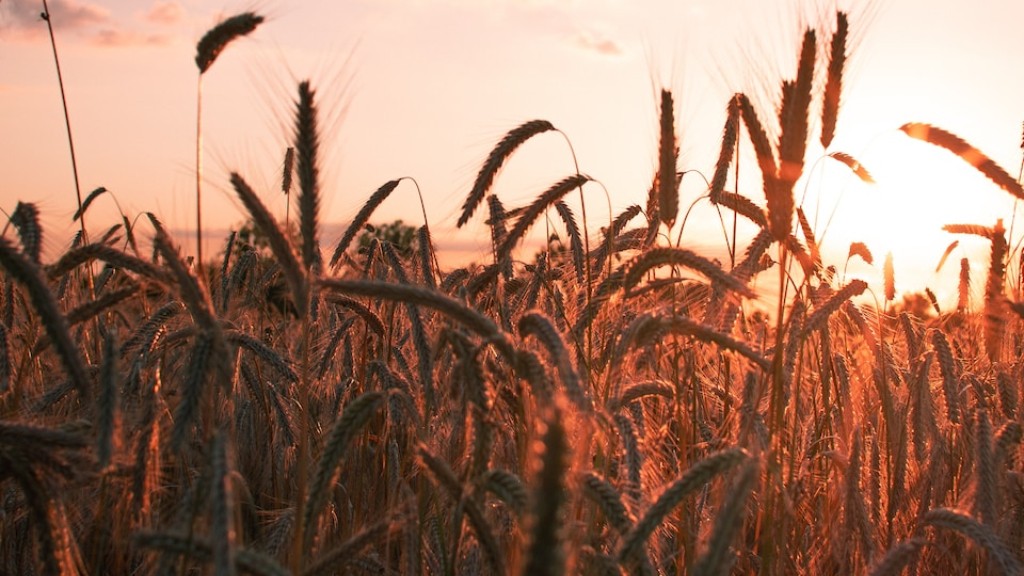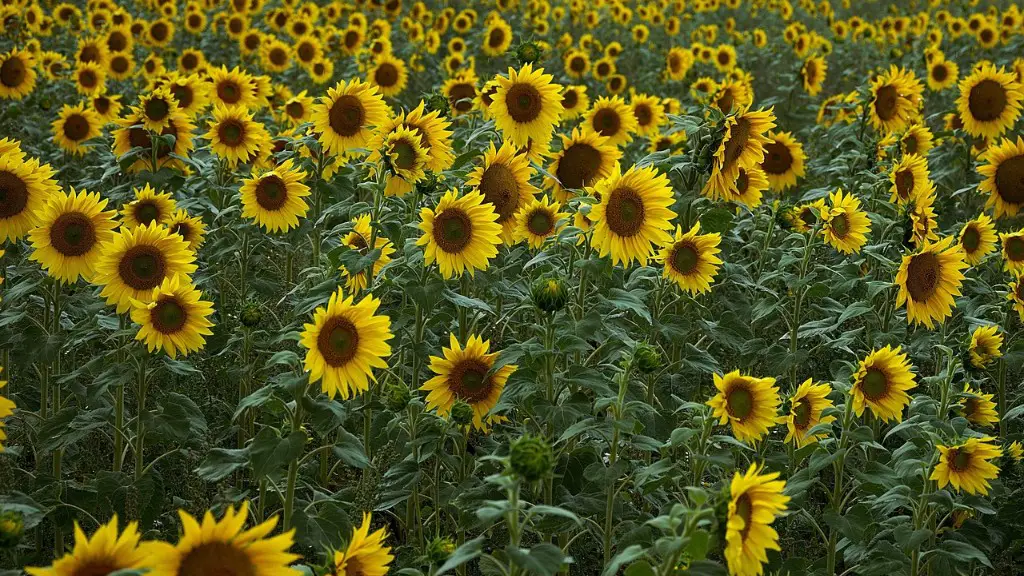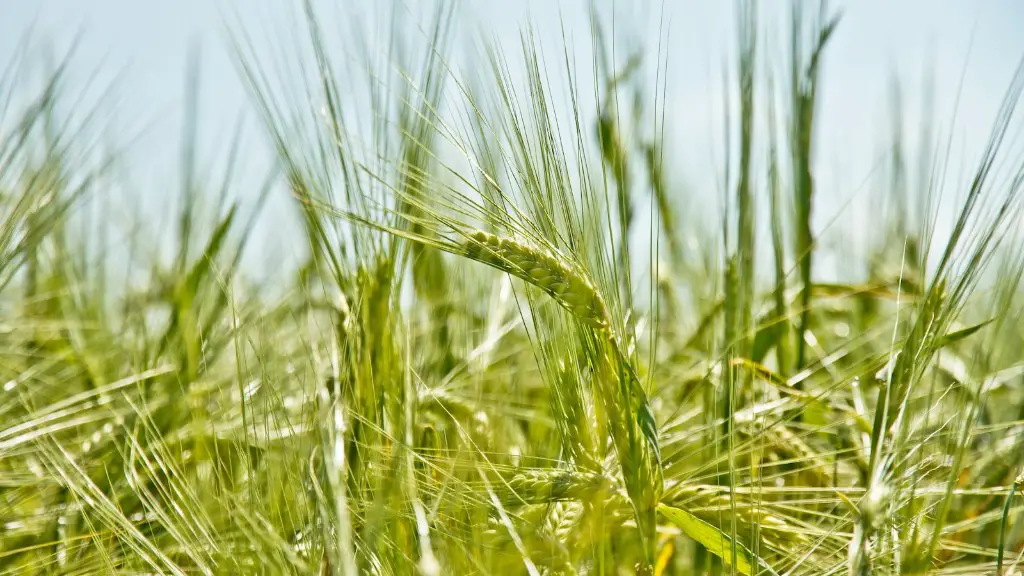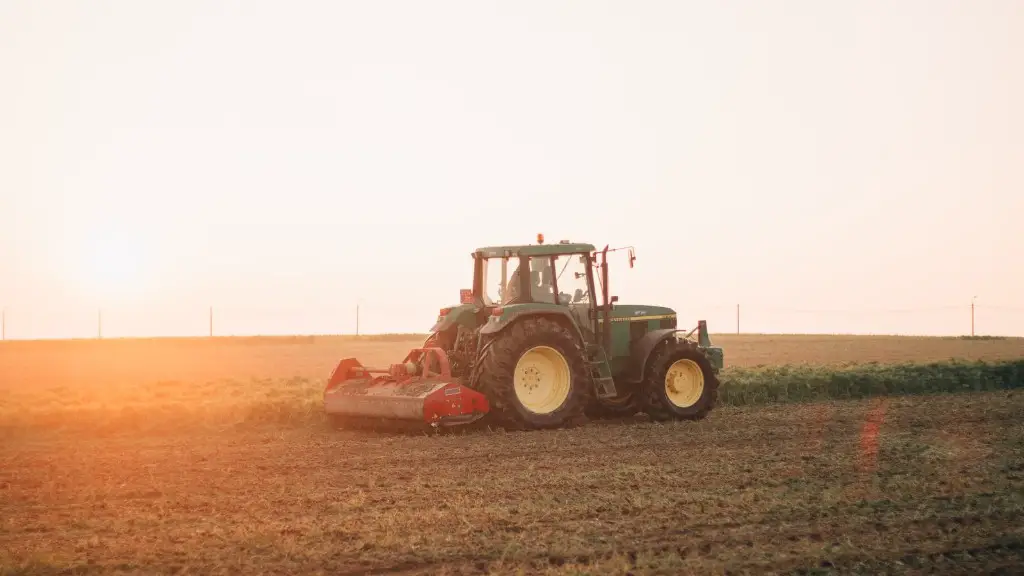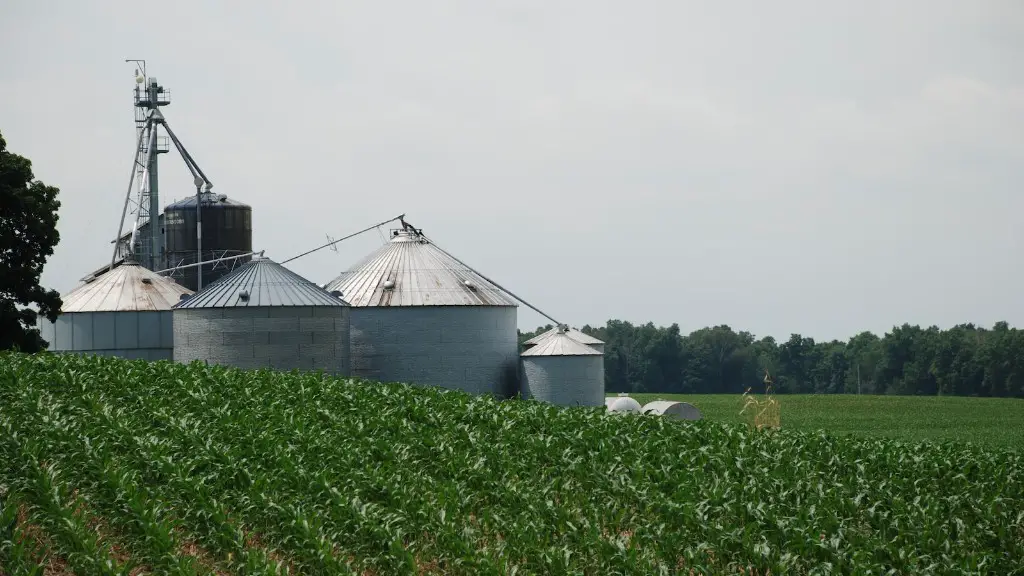The question of whether agriculture can reduce poverty is a complicated one, with many factors to consider. However, there is evidence that suggests that agriculture can play a role in reducing poverty. For example, when small-scale farmers have access to land, water, and other resources, they are able to produce enough food to feed their families and earn a income. In addition, agricultural productivity is often linked to economic growth, which can create jobs and reduce poverty. While agriculture alone cannot eliminate poverty, it can be a powerful tool in the fight against poverty.
Agriculture can play a key role in reducing poverty. When small-scale farmers have access to the resources they need – including land, water, seeds, and financing – they can increase their productivity and incomes. This, in turn, can lead to improved nutrition and health outcomes, as well as better educational opportunities for children. When more people have the chance to escape poverty, it benefits not only individuals and families, but also entire communities and countries.
How can we reduce poverty?
Eradicating poverty is an important global goal and there are many ways to achieve it. One important way is to reduce inequality, as this can help to reduce poverty. Another way to reduce poverty is to increase resilience, by investing in climate change solutions and ensuring climate justice. Education is also key to reducing poverty, as it can help to provide people with the skills and knowledge they need to find good jobs and escape poverty. Finally, peace is essential for poverty alleviation, as conflict can destroy livelihoods and make it difficult for people to access essential services. Cash transfers can also be an important tool for reducing poverty, as they can help to provide people with the resources they need to escape poverty.
Agriculture is critical to developing countries, both economically and in its potential to improve people’s lives. People who work in agriculture in developing countries typically do so as independent small-scale farmers or pastoralists who depend on the food they can produce on their own.
The United Nations’ Food and Agriculture Organization (FAO) estimates that small-scale farmers and pastoralists make up the majority of the world’s 2.5 billion people who work in agriculture. In sub-Saharan Africa, small-scale farmers produce up to 80% of the region’s food.
The importance of agriculture to developing countries cannot be understated. Not only does it provide a significant source of income and employment, but it is also a key driver of economic growth. The agricultural sector is often the largest employer in developing countries, accounting for up to 40% of the workforce.
In addition to its economic importance, agriculture also has the potential to improve people’s lives in other ways. For example, agricultural productivity is a key factor in reducing poverty and hunger. In fact, the FAO estimates that if small-scale farmers in developing countries were able to increase their productivity by just 10%, it would lift over 100 million people out of poverty.
agriculture is
How does agriculture improve the economy
Agriculture is an important sector of the US economy, contributing to the overall gross domestic product (GDP). The sector includes farm production, forestry, fishing activities, textile mills and products, apparel and food and beverage sales, and service and manufacturing. Agriculture directly and indirectly contributes to economic development by creating jobs, generating income and tax revenue, and providing goods and services.
Punjab and Haryana are two states in India that have achieved high agricultural growth in recent years. This growth has helped to reduce poverty levels in both states. There are a number of factors that have contributed to this success, including good weather conditions, increased use of technology, and improved infrastructure.
What are 3 reasons why agriculture is important?
1. Agriculture is the main source of raw materials.
2. It’s important to international trade.
3. It plays a big role in a nation’s revenue.
4. It provides employment.
5. It’s crucial to a country’s development.
6. It can help heal the environment.
7. It goes hand-in-hand with war.
8. It can be a big help in disaster relief.
9. It supports a huge amount of the world’s population.
10. It’s an interesting and important field of study.
Agriculture is the primary source of raw materials for many industries. Crops for food, silk for cloth, and wood for shelter are all derived from agriculture. The basic needs for human survival depend on agriculture for their production. Agriculture is essential for sustaining our way of life.
Do most farmers live in poverty?
CPS data show that average farm household income is 20-30 percent higher than that of nonfarm households, but still below 130 percent of the poverty line. General safety nets may be the answer. Eligible farm households are more likely to be white than nonfarm households, but both groups are eligible for government assistance programs.
Agriculture provides a majority of the world’s food and fabrics. Common agricultural products include cotton, wool, and leather. Additionally, agriculture provides wood for construction and paper products. The types of products and methods used may vary depending on the location.
What are 5 reasons why agriculture is important
Agriculture is one of the most important sources of raw materials for many industries. Agriculture provides raw materials for industries such as cotton and jute fabric, sugar, tobacco, edible as well as non-edible oils. Other industries such as processing of fruits as well as vegetables and rice husking also get their raw materials mainly from agriculture.
The abundance of food is necessary to support a high population density and agriculture has allowed people to become free from worry about where their next meal will come from. This way of life has led to the growth of towns and cities and has given people the time to pursue other interests.
What role does agriculture play in poverty?
Agriculture is the backbone of the rural economy and the main source of livelihood for the rural poor. The development of agriculture can play a direct role in poverty alleviation, by providing employment and income opportunities for the rural poor. In addition, agricultural development can also indirect contribute to poverty alleviation through rural infrastructure development, such as roads, irrigation, and market access.
The top 10 agriculture-producing States in terms of cash receipts in calendar year 2021 were (in descending order): California, Iowa, Nebraska, Texas, Minnesota, Illinois, Kansas, Indiana, North Carolina, and Wisconsin. This is according to data released by the USDA. California leads the pack with $39.8 billion in cash receipts, followed by Iowa with $32.4 billion, Nebraska with $24.4 billion, and Texas with $23.6 billion. Minnesota, Illinois, Kansas, Indiana, North Carolina, and Wisconsin round out the top 10, with each state bringing in over $20 billion in cash receipts from agriculture.
What is the economic importance of agriculture for poverty reduction
The phenomenon known as the “agricultural paradox” is often used to describe the surprising fact that, as incomes grow, consumers increase their consumption of manufactured goods and services faster than their consumption of food. This paradoxical relationship is usually accompanied by rising incomes and a lower incidence of poverty among those who depend on agriculture for a living. There are a number of possible explanations for this seemingly contradictory relationship. One theory is that as incomes rise, people generally become more concerned with health and nutrition, and therefore place a greater value on food. Another explanation is that as incomes grow, people are able to purchase more processed and packaged foods, which are often more expensive than unprocessed foods. whatever the reason, the agricultural paradox is an interesting and important phenomenon that has implications for both developed and developing countries.
It is obvious that agriculture is important for any country’s economy. It is the backbone of the economy which provides food and nutrition security and helps in industrialization. It is essential for any country to have a strong agriculture sector in order to have a strong and prosperous economy.
What are pros and cons of agriculture?
Agriculture has been a vital part of human society for thousands of years. It provides us with food, and has also led to the development of civilizations. However, there are also some disadvantages to agriculture. For example, there can be conflicts over access to food supplies, and weather can damage crops.
Agriculture has a profound impact on the environment, both positive and negative. It can lead to soil erosion and water pollution, contribute to climate change and deforestation. On the positive side, agriculture can help to improve air quality and promote the growth of vegetation.
Final Words
There is no one answer to the question of whether or not agriculture can reduce poverty. It depends on many factors, including the specific agricultural sector, the amount of land and resources available, the climate, the level of technology, and the economic and political environment. In some cases, agriculture may be the only way to reduce poverty, while in others it may play only a small role. Reducing poverty requires a comprehensive approach that includes many different sectors and industries.
Yes, agriculture can reduce poverty. When people are able to grow their own food, they are less likely to go hungry. This can lead to improved health and increased economic opportunities. In addition, agriculture can create jobs and provide income for people living in poverty. When more people are employed and have money to spend, this can help to reduce poverty levels.
